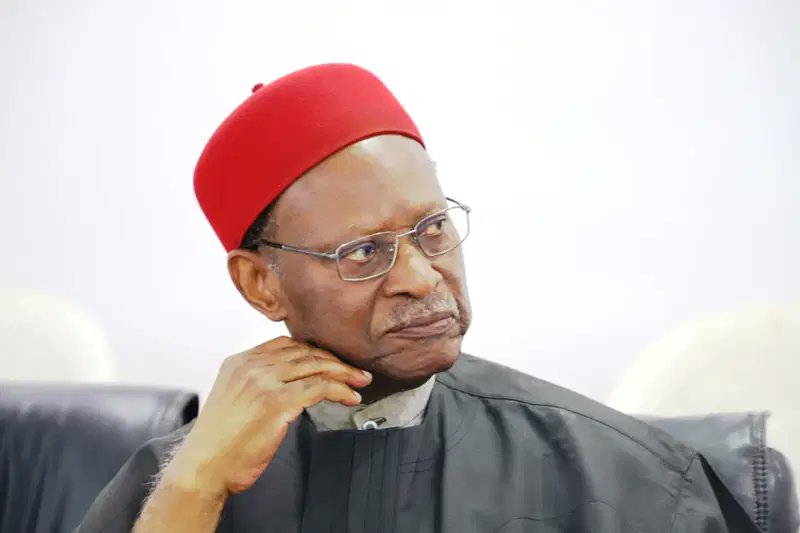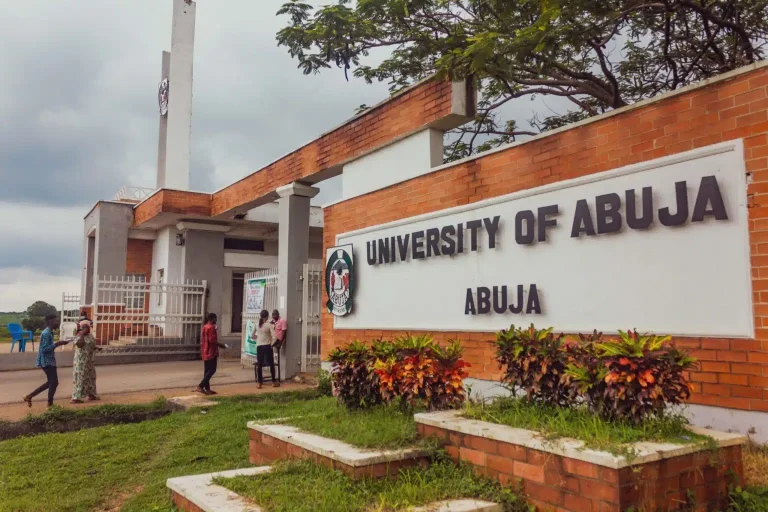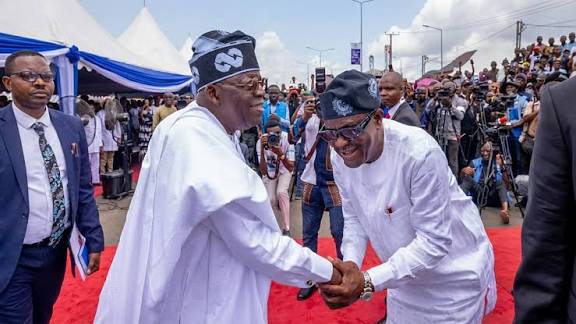
Former Commonwealth Secretary-General, Chief Emeka Anyaoku, Wednesday, warned that if Nigeria refuses to do away with the 1999 Constitution, development will continue to elude the country.
While faulting the 99 Constitution which he described as unitary, Anyaoku argued that united and progressive pluralistic countries were those who addressed their diversity with true federal constitutions.
The elder statesman spoke at the launch of the book: ‘The Noble Academic and Patriot: A Biography of Emeritus Professor Akinjide Osuntokun,’ held at the Nigerian Institute of International Affairs, NIIA, in Lagos.
Those who graced the NIIA for the launch included First Lady of Nigeria, Senator Oluremi Tinubu, represented by Senior Special Adviser on Policy, Strategy and Logistics, Wahab Alawiye-King; Commissioner for Information and Strategy, Mr Gbenga Omotoso; Former Ekiti State governor, Dr Kayode Fayemi; Spokesperson to former President Goodluck Jonathan, Mr Reuben Abati; Chairman of the Editorial Board of Nation Newspapers, Sam Omastseye; former Commonwealth; presidential candidate of the Labour Party, LP, in the 2023 polls, Mr Peter Obi; former Minister of Health, Prince Julius Adeluyi; Serving Overseer of the Citadel Global Community, Pastor Tunde Bakare; National Coordinator of Obidient Movement, Yunusa Tanko, Publisher of Ovation International, Dele Momodu; Dare Babarinsa, former Deputy Governor of Lagos State, Bucknor Akerele, governorship candidate of the LP in Lagos State, Gbadebo Rhodes-Vivour, Erelu Kuti of Lagos, Erelu Abiola Dosunmu, media guru, Dr Yemi Ogunbiyi, former presidential adviser, Akin Osuntokun.
Chairman of the Occasion, Anyaoku, in his speech, said Nigeria, like many other countries across the world, was a pluralistic country whose population comprised peoples long established in their separate geographical areas with different histories, cultures, languages and religions.
He said: “The universal lesson is that pluralistic countries, which have survived as single political entities in unity and progress, are those that address their pluralism, that is, their diversity, with genuine federal constitutions. Examples of such countries are India, Canada and Switzerland. The other pluralistic countries, which failed to manage their pluralism with true federal constitutions, eventually disintegrated.
“Examples of these include Yugoslavia, which after 74 years of existence broke into seven sovereign states; Czechoslovakia, which separated to two independent states, East Timor, which separated from Indonesia, and coming nearer home here in Africa, Sudan, which broke into two separate countries after almost 3,000 years of existence as a country. I believe, therefore, that if our pluralistic Nigeria is to achieve true unity and political stability, and to successfully tackle the serious challenges that the country faces, it must have a truly federal constitution.”
While maintaining that the trouble with Nigeria was not political leadership, he said with the 1999 Constitution, not even Angel Gabriel or Mala`ika Jibril could tackle Nigeria’s challenges.
He said: “The divisiveness, the underperforming economy with the resultant massive poverty, the insecurity, the humongous corruption and the other major challenges currently facing Nigeria. My warning, therefore, is that for the sake of preserving our country, the Federal Government and National Assembly should not delay any longer acting to what is clearly a universal lesson.
We must have a true Nigerian peoples democratic constitution based on the principles that underlie our 1960/63 Constitution, which was hence technically negotiated and agreed by the founding fathers of independent Nigeria.
“As many of us in this room will remember, Nigeria was more united, more stable, and developing towards achieving its potential after that constitution until the military intervened in governance in January 1966 and introduced a unitary constitution that has virtually existed, albeit in different forms, until today.”



